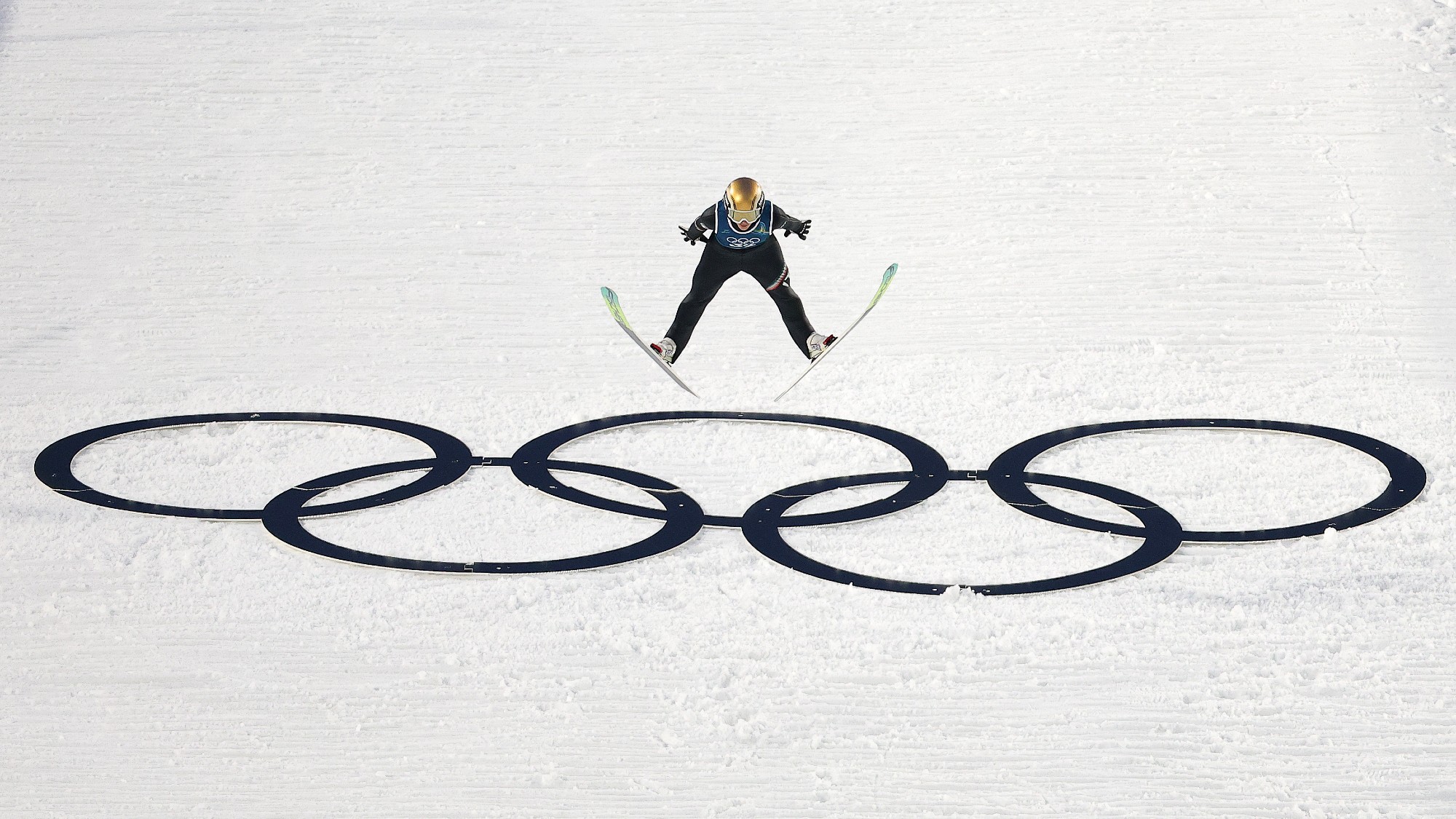Earth's magnetic North Pole is shifting toward Russia
The pole is on the move


A free daily email with the biggest news stories of the day – and the best features from TheWeek.com
You are now subscribed
Your newsletter sign-up was successful
The planet's magnetic North Pole, where compasses point, has been unexpectedly moving toward Russia. While shifting is not a rare occurrence, the pole is moving both faster and differently than it was before, raising questions about the planet's magnetic field. If the Earth's field is disrupted, it may cause problems in technology and navigation, as well as expose the planet to unwanted radiation.
Moving the poles
There are two types of poles on Earth: the geographic and magnetic poles. The geographic North Pole "stays at the same place, as it is where all lines of longitude converge," while the magnetic North Pole is where a compass points, which "changes from time to time as the contours of Earth's magnetic field also change," said USA Today. Because of this, scientists have long tracked changes in the magnetic pole. "For centuries, the magnetic North Pole steadily tracked along Canada's northern shore," but in the past few decades, it has "taken a new path, accelerating across the Arctic Ocean toward Russia's Siberia province at varying speeds that have puzzled scientists," said Newsweek.
Magnetic poles move because the "liquid metal in the outer core is sloshing around instead of holding steady," said Snopes. The speed at which the pole has moved has varied significantly: From 1600 to 1990, it moved roughly 10 to 15 kilometers (6 to 9 miles) per year, accelerating to approximately 55 kilometers (about 34 miles) annually in the early 2000s and slowing to about 25 kilometers (15.5 miles) per year in the last five years. These findings were documented by the British Geological Survey (BGS). "It's a big, chaotic and turbulent ball of molten iron going around in the middle of the earth that generates the magnitude," William Brown, a geomagnetic field modeler at the BGS, said to The Independent. "So while we can monitor and see how it's changing, it is quite difficult to predict exactly how it will change."
The Week
Escape your echo chamber. Get the facts behind the news, plus analysis from multiple perspectives.

Sign up for The Week's Free Newsletters
From our morning news briefing to a weekly Good News Newsletter, get the best of The Week delivered directly to your inbox.
From our morning news briefing to a weekly Good News Newsletter, get the best of The Week delivered directly to your inbox.
The switch in direction and momentum has raised questions. Scientists have some possible explanations, including "changes in the flow of molten iron beneath the Earth's crust," and "high-energy solar particles interacting with the Earth's magnetosphere, such as during solar storms and winds." The phenomenon "may be linked to the Earth's history of magnetic pole reversals, which have occurred nearly 200 times over the past 100 million years," said Earth.com. Understanding pole shifting can help scientists "gain a better understanding of Earth's geodynamo, which is the engine behind the magnetic field that shields us from harmful solar radiation."
Global shifts
The shifting of the North Pole has a big impact on the World Magnetic Model, which "predicts where the pole should be at any one time," said The Times. This model "helps to direct the compass tools found in smartphones," and is "used by the military to steer submarines through Arctic waters," in addition to playing a role in GPS systems. The unusual push toward Russia "isn't just an intriguing natural occurrence," but one that can have "profound and far-reaching" implications on global navigation technology, said Earth.com.
One of the main things researchers are monitoring is the potential for a full magnetic reversal, during which the North and South Poles would flip entirely. While this has occurred many times throughout Earth's geological history, there is very little known about how it would affect the world today. As of now, "the magnetic South Pole has moved very little," said Brown to Newsweek, adding that it has covered "about the same distance in a century that the North Pole did in a decade." If the poles switch sides, experts predict that the planet's magnetic field would be disrupted, exposing it to harmful radiation.
A free daily email with the biggest news stories of the day – and the best features from TheWeek.com
Devika Rao has worked as a staff writer at The Week since 2022, covering science, the environment, climate and business. She previously worked as a policy associate for a nonprofit organization advocating for environmental action from a business perspective.
-
 What to watch out for at the Winter Olympics
What to watch out for at the Winter OlympicsThe Explainer Family dynasties, Ice agents and unlikely heroes are expected at the tournament
-
 Properties of the week: houses near spectacular coastal walks
Properties of the week: houses near spectacular coastal walksThe Week Recommends Featuring homes in Cornwall, Devon and Northumberland
-
 Will Beatrice and Eugenie be dragged into the Epstein scandal?
Will Beatrice and Eugenie be dragged into the Epstein scandal?Talking Point The latest slew of embarrassing emails from Fergie to the notorious sex offender have put her daughters in a deeply uncomfortable position
-
 How roadkill is a surprising boon to scientific research
How roadkill is a surprising boon to scientific researchUnder the radar We can learn from animals without trapping and capturing them
-
 NASA’s lunar rocket is surrounded by safety concerns
NASA’s lunar rocket is surrounded by safety concernsThe Explainer The agency hopes to launch a new mission to the moon in the coming months
-
 Nasa’s new dark matter map
Nasa’s new dark matter mapUnder the Radar High-resolution images may help scientists understand the ‘gravitational scaffolding into which everything else falls and is built into galaxies’
-
 The world’s oldest rock art paints a picture of human migration
The world’s oldest rock art paints a picture of human migrationUnder the Radar The art is believed to be over 67,000 years old
-
 Moon dust has earthly elements thanks to a magnetic bridge
Moon dust has earthly elements thanks to a magnetic bridgeUnder the radar The substances could help supply a lunar base
-
 The ocean is getting more acidic — and harming sharks’ teeth
The ocean is getting more acidic — and harming sharks’ teethUnder the Radar ‘There is a corrosion effect on sharks’ teeth,’ the study’s author said
-
 How Mars influences Earth’s climate
How Mars influences Earth’s climateThe explainer A pull in the right direction
-
 Cows can use tools, scientists report
Cows can use tools, scientists reportSpeed Read The discovery builds on Jane Goodall’s research from the 1960s
